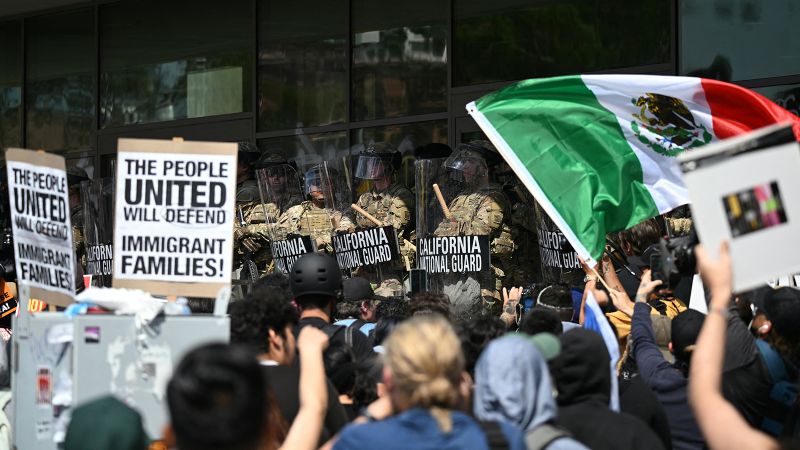In a recent press exchange, Tom Homan, President Donald Trump’s point man on border issues, asserted the need for greater military presence in Los Angeles, California, amid rising immigration protests. Homan’s remarks came as local authorities expressed uncertainty regarding the deployment of Marines to the city, questioning their purpose and necessity. Homan argued that the potential escalation of protest activities warranted precautionary measures in advance. “It’s all dependent on the activities of these protesters – they make the decisions,” he stated during an interview with CNN.
Homan’s comments reflected a broader concern about public safety, particularly during the evening, when he noted that crowds tend to increase and tensions often rise. He mentioned, “We want to be ahead of the game. We’ll be well prepared for the military here to protect government property and protect officers’ lives.” This proactive stance highlights the administration’s strategy in dealing with what it perceives as heightened risks associated with immigration-related protests.
Interestingly, Homan refrained from detailing the specific criteria the Trump administration employed to determine whether military mobilization in Los Angeles was warranted. His focus remained on distinguishing the roles of different agencies. “They’re not reinforcing immigration law – we’re doing that, we’re immigration officers,” he clarified. Homan emphasized that the primary responsibility of the Marines is safeguarding properties and ensuring the safety of both law enforcement personnel and the general public.
The situation became further complicated when President Trump, defying precedent, called upon the National Guard without a governor’s request. This unprecedented move took place over the weekend and was made without invoking the Insurrection Act of 1807, which traditionally gives the president authority to deploy military forces in extreme scenarios. Alongside the call to deploy an additional 2,000 California National Guard members to the Los Angeles region, the Department of Defense confirmed the mobilization of over 700 Marines from the Marine Corps Air Ground Combat Center as a direct response to the protests.
In discussing the administration’s deployment policies, Homan noted ongoing dialogues with various departments, such as the Department of Justice (DOJ), the Department of Homeland Security (DHS), and the Department of Defense (DOD), regarding military deployment decisions. Although he distanced himself from discussions about invoking the Insurrection Act, he acknowledged that conversations surrounding domestic military deployment occur regularly. “I think decisions on deployment of the National Guard and any other deployment of DOD are being made by the White House,” Homan stated.
The conversation took a more serious tone when pressed about the possibility of military presence being extended to other cities experiencing immigration protests. Homan expressed a desire that such actions would not become the norm, hoping instead that protesters would engage peacefully, respectful of law enforcement’s role in enacting legislation. “I hope people go out there and protest peacefully,” Homan remarked, indicating a preference for calm over confrontational demonstrations.
In light of the tension between state and federal responses to protests, Homan acknowledged that California Governor Gavin Newsom had not engaged in conduct that warranted arrest. When asked if he believed Newsom’s actions justified legal repercussions, Homan firmly responded, “Not at this time – absolutely not.” This response underscored an awareness of the delicate balance between law enforcement and political leadership during a charged moment of civil unrest.
Finally, Homan reiterated that Immigration and Customs Enforcement (ICE) operations would continue robustly across Los Angeles and the nation. He emphasized that ICE’s actions are not contingent upon the protests and will persist uninterrupted. “We have teams throughout the country that are out there looking for those in the country,” he stated, solidifying ICE’s commitment to its objectives amid ongoing national conversations about immigration policy and public safety. Homan’s statements encapsulate a complex intersection of immigration policy, civil rights, and public safety that continues to evolve in contemporary U.S. society.



